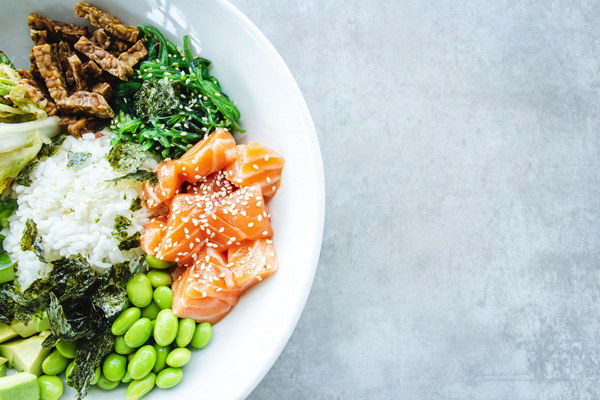Nourishing the Mind Top Nutritional Choices for Managing ADHD
Introduction:
Attention-Deficit/Hyperactivity Disorder (ADHD) is a common neurodevelopmental disorder that affects both children and adults. While medication is often the first line of treatment, dietary interventions can also play a significant role in managing symptoms. This article explores the best nutritional choices for individuals with ADHD, focusing on foods that can help improve focus, reduce impulsivity, and enhance overall well-being.
1. Omega-3 Fatty Acids:
Omega-3 fatty acids, found in abundance in fish, nuts, and seeds, are well-known for their brain-boosting properties. These essential fatty acids play a crucial role in the development and function of the brain and can help alleviate ADHD symptoms. Foods rich in omega-3s include:
- Fish: Salmon, sardines, mackerel, and trout
- Nuts and seeds: Almonds, walnuts, chia seeds, and flaxseeds
- Vegetables: Leafy greens, such as spinach and kale
2. Protein:
Protein is essential for the production of neurotransmitters, which are responsible for regulating mood, attention, and impulsivity. Including high-quality protein sources in your diet can help stabilize blood sugar levels and reduce cravings. Some excellent protein options include:
- Lean meats: Turkey, chicken, and lean beef
- Eggs: Rich in nutrients and amino acids
- Legumes: Lentils, chickpeas, and black beans
- Dairy: Greek yogurt, cottage cheese, and milk
3. Fiber:
Fiber helps regulate blood sugar levels, which can be beneficial for individuals with ADHD. Consuming high-fiber foods can also improve digestion and overall gut health. Incorporate these fiber-rich foods into your diet:
- Fruits: Apples, berries, and oranges
- Vegetables: Carrots, broccoli, and spinach
- Legumes: Lentils, chickpeas, and black beans
- Whole grains: Oats, quinoa, and brown rice
4. Antioxidants:
Antioxidants protect the brain from oxidative stress and inflammation, which can exacerbate ADHD symptoms. Foods high in antioxidants include:
- Berries: Blueberries, strawberries, and raspberries
- Dark chocolate: Rich in flavonoids, which have antioxidant properties
- Green tea: Contains catechins, a type of antioxidant

- Vegetables: Spinach, kale, and bell peppers
5. Vitamins and Minerals:
Certain vitamins and minerals are crucial for brain health and can help manage ADHD symptoms. Ensure your diet includes the following:
- Vitamin D: Found in fatty fish, egg yolks, and fortified dairy products
- Iron: Important for neurotransmitter production, found in red meat, poultry, and beans
- Zinc: Necessary for brain development, found in nuts, seeds, and legumes
- Magnesium: Helps regulate neurotransmitter function, found in whole grains, nuts, and seeds
Conclusion:
While there is no single miracle diet for ADHD, incorporating these nutritional choices into your daily routine can help improve focus, reduce impulsivity, and enhance overall well-being. It's essential to consult with a healthcare professional before making significant changes to your diet, as they can provide personalized recommendations based on your specific needs. Remember, a balanced diet is the foundation for a healthy mind and body.









